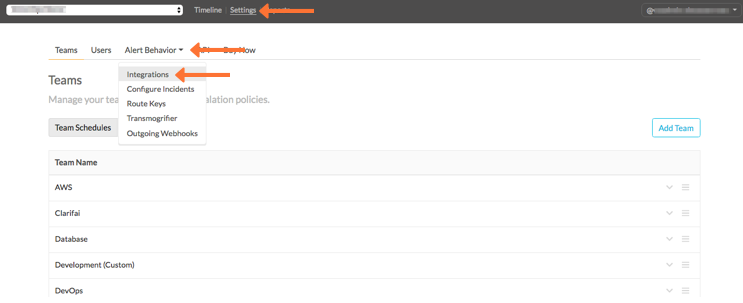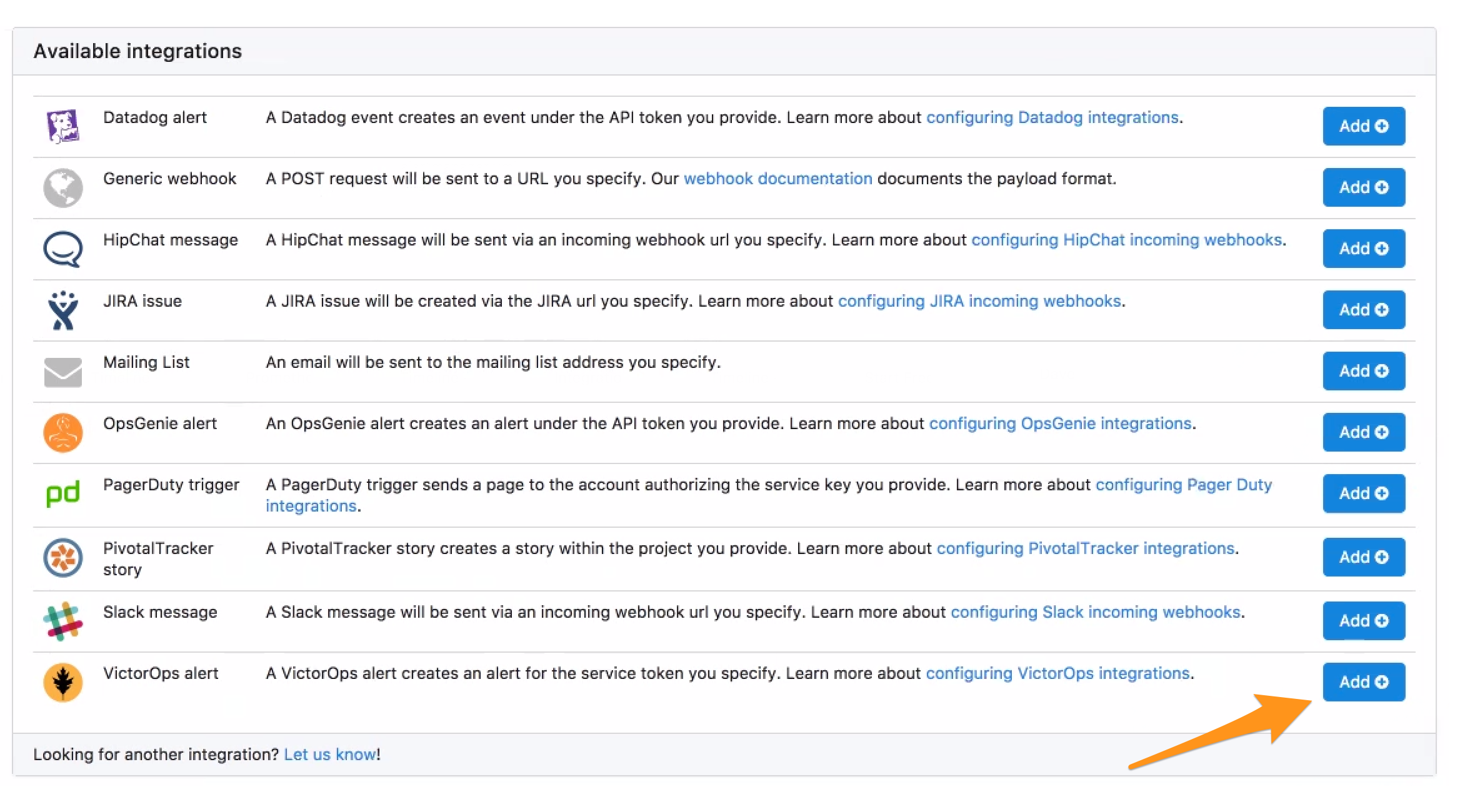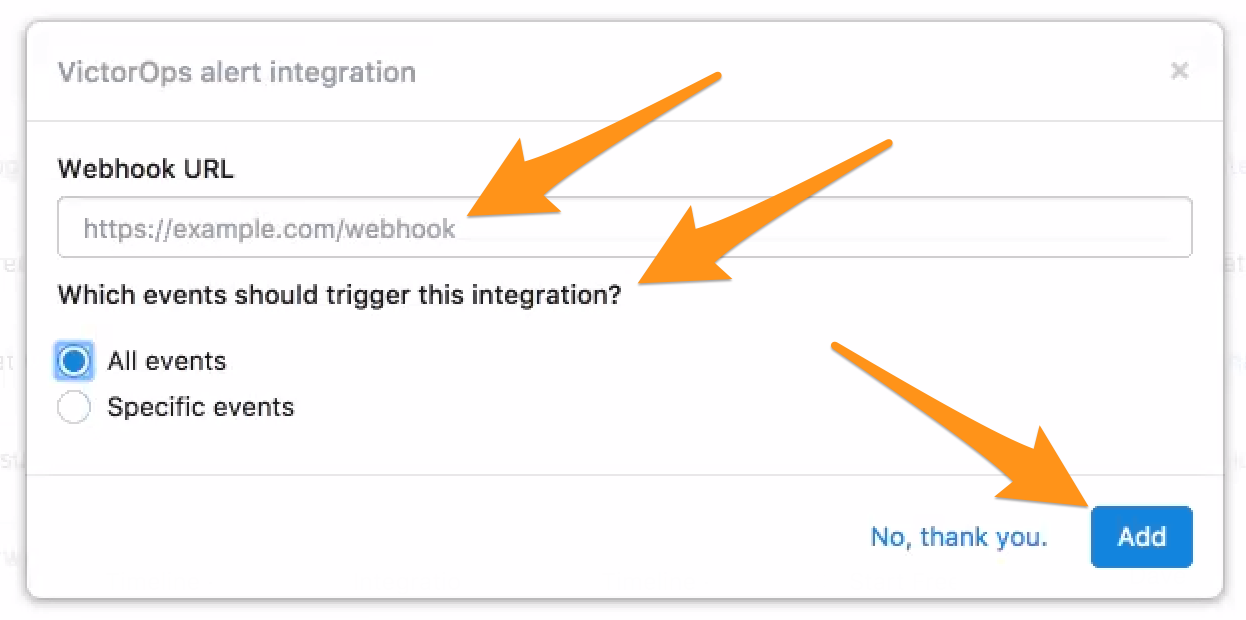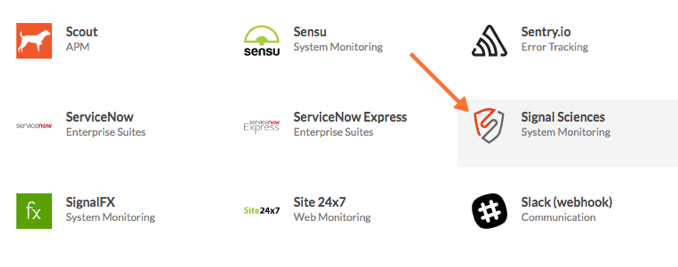Signal Sciences integration for Splunk On-Call 🔗
Signal Sciences gives you theinsights you need to prioritize your security resources to address attacks as they occur. With greater visibility and awareness, you can make informed decisions and confidently run your web applications. The following guide walks you through this integration.
Requirements 🔗
This integration is compatible with the following versions of Splunk On-Call:
Starter
Growth
Enterprise
Splunk On-Call configuration 🔗
From the Splunk On-Call web portal, select Settings, Alert Behavior, Integrations.

Select the Signal Sciences integration option.
Copy the Service API Endpoint to the clipboard and replace the $routing_key section with the routing key you want to use. See Create Routing Keys in Splunk On-Call.

Signal Sciences configuration 🔗
From the Signal Sciences web interface, select the Configurations menu, then select Integrations.

Locate the Splunk On-Call alert integration on the list of available integrations and select Add.

Paste the URL from the previous section into the Webhook URL field, then select the events that trigger an alert and select Add.

Splunk On-Call alert appears as a configured integration. Select Test to send a test alert to Splunk On-Call. Make sure that you see the alert in your Splunk On-Call timeline.

